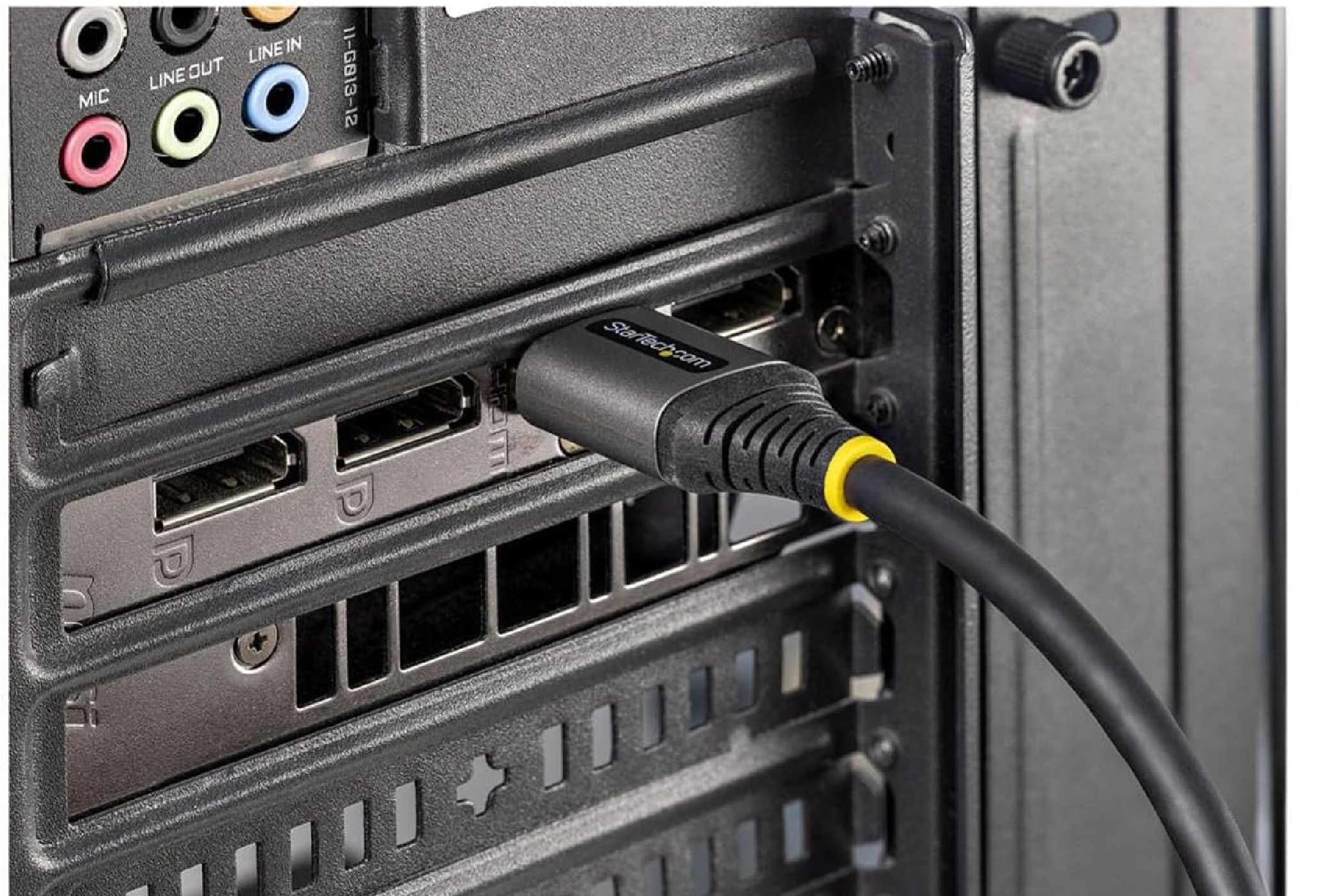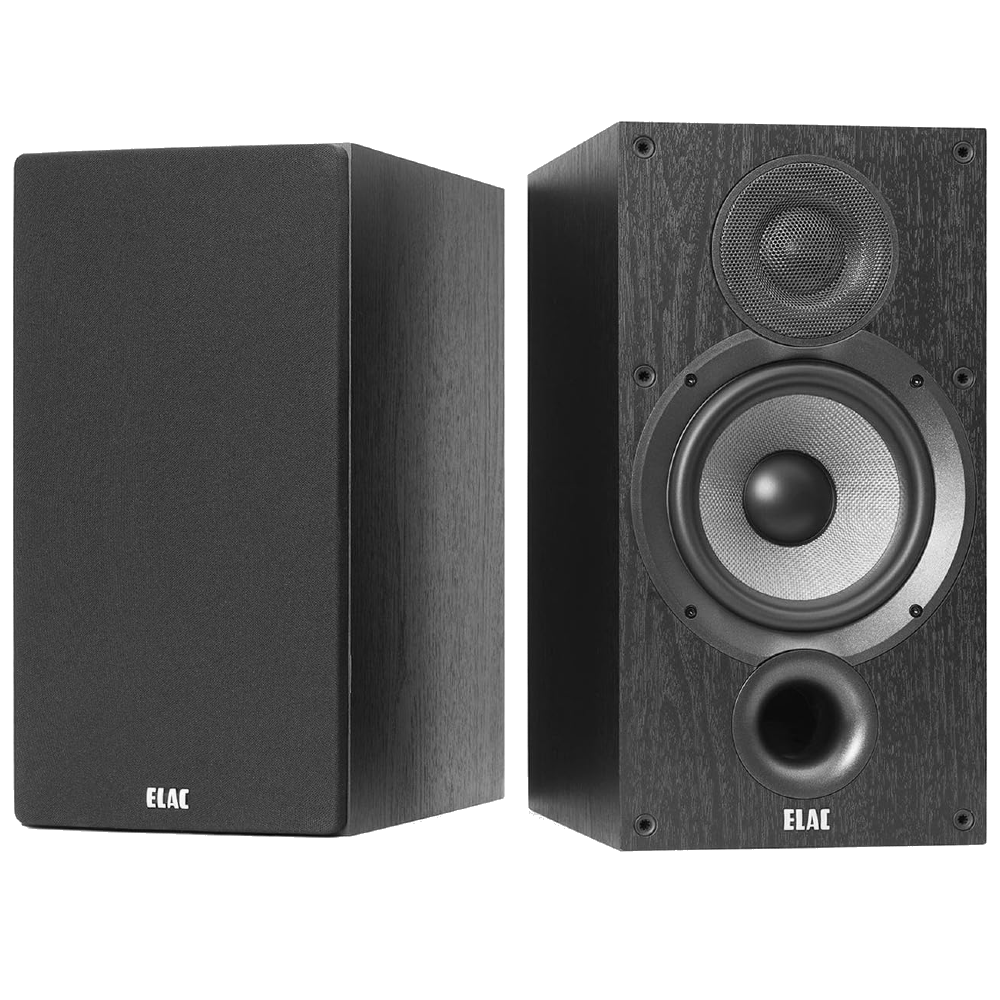
Eliminating the Annoying White Noise in My Speakers: A Step-by-Step Fix

Eliminating the Annoying White Noise in My Speakers: A Step-by-Step Fix
Key Takeaways
- Common causes of white noise in speakers include signal interference, broken wires, and excess amplifier noise.
- Fixing white noise in speakers involves checking cables and ports for damage or loose connections.
- Additional remedies for white noise include arranging cables correctly and examining speaker cones for damage.
Nothing enrages my eardrums quite as much as a quality speaker emitting white noise. Once, I bought a speaker, and after only a few months it developed a slight hissing noise, which is when I realized I knew very little about white noise and its causes. Thankfully, some quick research not only explained where it was coming from but also gave me a solution on how to fix it.
What Causes White Noise In Speakers
It doesn’t matter if you’re dealing with a large stereo monitor or a tiny wireless Bluetooth device, any speaker can fall prey to the tragedy of white noise, and it can originate from a host of culprits, including:
- Signal Interference
- Broken Speaker Wires
- Loose Connections
- Excess Amplifier Noise or High Gain
In my case, I had a simple PA (Public Address) setup with a soundboard and two monitors. At first, I fell into a pretty bitter mood, thinking that my system might be permanently broken, given the noise was present even after I had muted the speaker. However, after a short examination, I found the solution was much simpler than I thought.
How I Fixed My Speaker in Under 5 Minutes
Fixing white noise is intuitive once you know where it’s coming from. But to eradicate it, you must know your system, equipment, setup, and sound settings because that helps you know where to look so you can quickly figure out what the issue is.
Check All Ports and Connection Points
First, check all your cables and wires, as they are more likely to fray close to where they attach to the plug, which causes connection issues, leading to interference.

StarTech.com
The easiest way to check for a bad cable is with an alternate cable. Just replace the cable—if the sound goes away, you know what the problem is. However, if you lack an extra cable, try wiggling the wire at the connection point to see if the noise ceases. Keep in mind, it usually takes a fair bit of jostling, both at the connection point and at different areas along the wire. While you examine the wire, listen to hear if the white noise intensifies or diminishes. If so, that’s how you know there’s a cable issue.
If it’s not the cable, next, check for loose ports and input jacks. Most ports have a nut that you can twist with pliers or tighten with a screwdriver. In my case, I found that my system had a couple of loose ports, but it was one in particular that was loose enough to cause the connection issue. I used pliers to twist the nut around the 1/4-inch jack, and the white noise went away. However, keep in mind that tightening it too hard can damage the jack, so always tighten it to the point where it’s snug and nothing more.
Other Common White Noise Remedies
Loose jacks are the easiest to fix for white noise but, as mentioned earlier, white noise comes from a variety of issues. Most of these are also easy to fix, so here are a few more common areas to test as you look to abolish white noise.
Arrange Wires and Audio Cables Correctly
Sometimes, it’s not a damaged wire causing white noise, but the placement. Wires transfer large amounts of energy, and when they are too close together it can cause radio interference. As a solution, try untangling and uncrossing any wires to see if the noise goes away, then tape them down or place them further apart to ensure the noise doesn’t return.
Examine Your Speaker Cones
One of the more challenging problems to solve is faulty speaker cones. If you check your plugs and your wires and find no issues, the next step is to examine the speakers for punctures, tears, or excessive wear. When this is the case, the speaker struggles to move, which causes buzzing noises which sometimes take the form of steady feedback.

ELAC
If the damage isn’t severe, it’s possible to administer a cone patch yourself. But I’d only recommend doing so if you are comfortable with such repairs; otherwise, you could risk damaging the speaker further.
What About Wireless Speakers?
Wireless speakers come with an internal amplifier, which can experience interference if there’s a connection or wiring problem. Bluetooth speakers can also make static when in proximity to other electric-powered devices operating on the same frequency range. To see if this is the cause, move the Bluetooth speaker to an isolated area away from other electric devices, like stoves, microwaves, and TVs, and listen to see if the noise stops.
Most of the time, the simple fixes listed above will clear up your white noise issues in a matter of minutes. However, remember that the noise could come from more complicated issues, such as an internal wiring problem. In this case, you’ll likely have to get the speaker inspected by a professional or return it to the manufacturer.
Also read:
- [Fix] Non-Printing USB Printers on Win7 After Suspend
- [New] Pathway to Profit via Youtube's CP2024 Program
- [New] Screencasting Simplified Adopting the EZvide Method for 2024
- [Updated] Elevate YouTube Video Quality, Minimize Distractions for 2024
- Navigate and Communicate Seamlessly Using Mercedes-Benz’s ChatGPT-Enabled, Voice-Controlled Infotainment System
- Outperforming ChatGPT: Top 4 Advantages of Choosing the Claude AI Chatbot
- Step-by-Step Guide: Mastering the Return Process of Your Apple Vision Pro (ZDNet)
- Streamlining Instagram Video Load Times (Mobile)
- The Ultimate Compendium of Hardware by Tom's Tech Team
- The Ultimate Gaming Machine: Razer Blade 18 Unveiled with Powerful I9-14900HX & Immersive RTX 4090 at $4,799
- Tom's Expertise in Computer Systems and Equipment
- Tom's Tech Insights: Comprehensive Computer & Hardware Reviews
- Tom's Tech Review: In-Depth Analysis of Cutting-Edge Computer Components
- Title: Eliminating the Annoying White Noise in My Speakers: A Step-by-Step Fix
- Author: Joseph
- Created at : 2024-10-14 00:35:31
- Updated at : 2024-10-18 23:58:35
- Link: https://hardware-help.techidaily.com/eliminating-the-annoying-white-noise-in-my-speakers-a-step-by-step-fix/
- License: This work is licensed under CC BY-NC-SA 4.0.